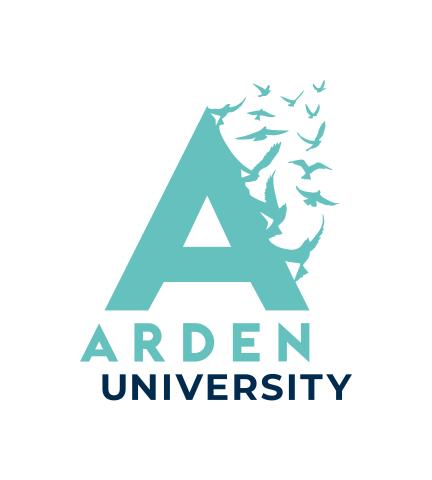
LinkedIn is becoming academia’s key tool for career progression
As a lifelong marketer, I passionately believe in the power of communication to change people’s lives and make them better. My academic career has progressed quickly, and today I hold the position of head of school for digital marketing and sales at Arden University. Would I have got where I am today without the power of social media? Absolutely not.
Academia is a vital arena, not only in teaching students a core knowledge base but in helping prepare them for the world of work. This means not only excel in their day-to-day job but learn how to interact with the wider industry, create networks and improve their careers in the process.
Social media, and especially LinkedIn, is now a vital part of that engagement process, meaning students must be shown how to make the most of the platform as early as possible.
- I took an alternative route to academic success – and I’m happier than ever
- Academic snobs can’t afford to ignore LinkedIn any longer
- Building your research profile via social media, with a focus on LinkedIn
The rise of social media
Despite the dramatic rise of platforms such as Facebook, Twitter and Instagram as marketing and promotional powerhouses, it has taken a while for industry and academia to understand the power of social media for career progression. I clearly remember my introduction to LinkedIn (which today is the leading channel for career networking and recruitment); I believed it was a fad and didn’t take it seriously – but I was very wrong. It was several years before I came to understand the power of LinkedIn to help me progress my career.
Today, most students will be familiar with LinkedIn, but for universities the challenge isn’t necessarily to raise awareness of its existence but to demonstrate to students how to get the most out of it.
Build networks and raise career profiles
Beyond simply requesting individuals set up pages, universities should be stressing the core benefits of LinkedIn for academics and university professionals and encouraging them to reach out and build new networks of stakeholders (who you may never have considered before) who may be interested in your scholarly programmes or research work.
According to LinkedIn, the platform now has almost 740 million members with more than 55 million registered companies as of 2022. This is an extremely accessible and efficient way of identifying and creating new contacts with companies and researchers you may want to collaborate with. These new contacts can help disseminate academic work or promote educational programmes to a much wider audience than ever before, raising your academic profile.
Not only this, but established contacts are excellent resources for academics in identifying new networking – and, subsequently, employment – opportunities for their students, directly from the fields they are seeking to enter. Universities must encourage staff to allow students who are close to graduating to join their established networks. This will help students take the first step on the networking ladder and reach out to contacts who are already known to the university and thus more likely to be receptive to a student’s request to join their network.
Academics must also be encouraged to recommend and endorse students to their contacts. LinkedIn provides all members with the ability to endorse contacts on their network for key skills and experiences. Academics and university professionals should consider completing this activity for their students, just as they would do for their own professional contacts. This can be an effective means of providing students with a virtual introduction and help them kick-start their career following their studies.
Seeking your next role
LinkedIn is now one of the leading UK recruitment channels for industry and white-collar professionals. This trend is changing, however, with anecdotal evidence suggesting that increasing numbers of educational providers are also using this channel to recruit. Rightly or wrongly, vacancies within academia are often filled through word of mouth and contacts, and the core purpose of LinkedIn, with its networking function, lends itself very well to this form of recruitment.
The same applies to students who are seeking their first step on the career ladder. We know that competition for graduate jobs is immense and, much like industry and academic posts, can be boosted by contacts and the ability to demonstrate work experience in the relevant field.
Academics must therefore emphasise the importance of LinkedIn and demonstrate how it allows students to fulfil these requirements through listing work experience and achievements on their profile, networking for potential recruiters and being able to view job opportunities directly from their networks.
Not only this, but universities and their careers departments must recognise that LinkedIn is now the go-to channel for recruitment and recruiters and is invaluable for seeking student recruiters, placements and internship opportunities. Gone are the days of student recruitment fairs – we are now living in a digital world and these networks are being built online.
Promoting your own work
Another core benefit of LinkedIn is the ability to share work and achievements with a wider audience, as well as being an excellent vehicle for creating awareness of new and existing programmes. It is vital to build up robust networks of like-minded individuals who may want (at some point in the future) to enhance their career. Universities must therefore make it a point to ask graduating students to join them on LinkedIn and engage with their content – with the ultimate goal of growing lists of potential leads.
There is no going back – the future of academic networking and career progression is through social media. We must adopt a digital-first approach and embrace these channels fully if we want to keep up and be 21st-century educational providers.
Gillian McCurdy is head of the School of Digital Marketing and Sales at Arden University, UK.
If you would like advice and insight from academics and university staff delivered direct to your inbox each week, sign up for the Campus newsletter.




